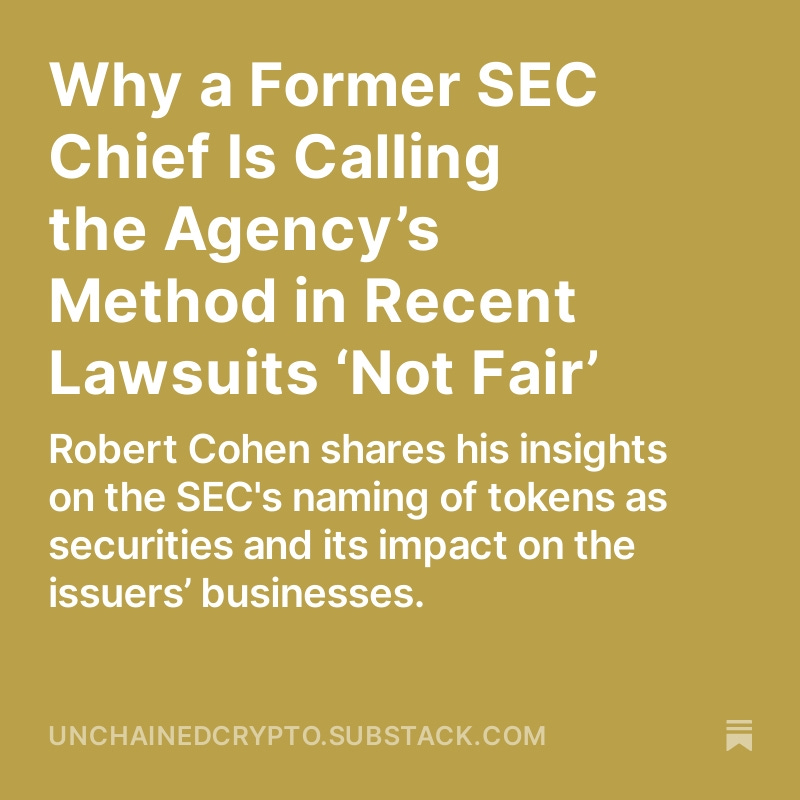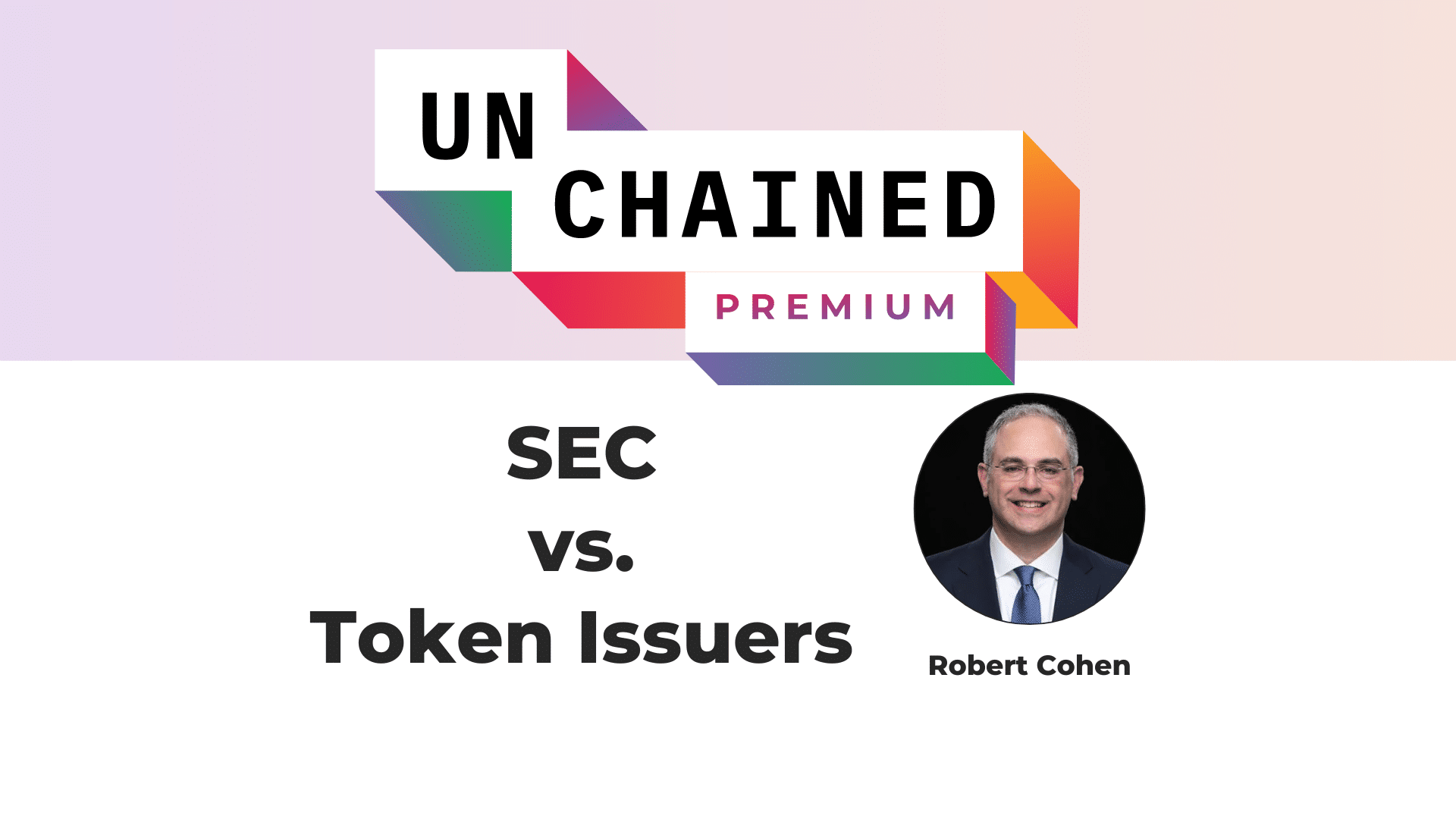The way the U.S. Securities and Exchange Commission (SEC) is calling tokens securities in lawsuits in which the token issuers cannot defend themselves is “unfair” and harming “real people and real businesses,” according to Davis Polk partner Robert Cohen.
Cohen, who specializes in white collar defense and investigations for the white-shoe law firm, previously worked for 15 years as a senior attorney in the SEC’s Division of Enforcement and, in 2017, founded its cyber enforcement unit, which focused on violations involving digital assets.
The SEC launched volleys against industry giants Binance and Coinbase this week, charging both of them with operating their trading platforms as unregistered securities exchanges, among other things. However, in addition, the two complaints also named almost two dozen tokens as securities.
The catch? Those token issuers are not named as defendants, and therefore cannot either defend themselves or clear the name of the token, leaving the company and other groups involved in those blockchain communities in limbo.
“It’s pretty unfair. It’s having a real impact on real people and real businesses,” Cohen said in an interview with Unchained. “The tokens are named in a government complaint. And the people who created those tokens or whose businesses or livelihoods are really intertwined with those tokens are hugely impacted by those allegations.”
Cohen added that the SEC needs to be more transparent and offer more clarity regarding the criteria for whether tokens are considered securities.
He said the SEC needed to name some tokens as securities in order to provide a basis for the lawsuits against Binance and Coinbase. “The SEC’s view is they need to name at least some tokens that they view are securities and give rise to the violation by the defendant,” Cohen said. “Of course, they’re only naming a small number of securities in the Coinbase and Binance complaints. There are hundreds and hundreds of tokens that trade on those platforms. And the SEC is only saying in the complaints that a very small number are securities.”
However, that leaves the token teams as a sort of collateral damage. “When the SEC says that a token is a security and was not registered, they seem to at least be implying that something wrong happened there, not only by the defendant in that case, but they’re at least casting some negative suggestion on the people who are involved in that token in the first place,” he said.
Any parallels to insider trading cases brought by the SEC also may not be a fair comparison, he added.

“I think they would say it’s similar to when they bring an insider trading case. So if they sue somebody for insider trading, they typically will say in the complaint, what companies stock that person traded. And I think they view it somewhat similarly, but I actually think it’s different,” he said, noting that if a company’s stock is being traded by a bad actor who may be committing insider trading, that is not the fault of the company.
“Nobody’s thinking particularly negatively about that company. In fact, that company is a victim. It’s their information that is being misused,” Cohen said. “And certainly there’s no allegation or suggestion that a company whose stock is traded is itself doing something wrong or committing a securities law violation. But with these crypto cases, it’s very different when the SEC says that a token is a security and was not registered.”
Looking ahead, Cohen said the lawsuits will be a drag on the token issuers and crypto networks whose tokens are caught up in these cases.
“Those cases could easily litigate for years. Look at the Ripple litigation. How long has that been going on? That’s been going on for years,” he said. “These allegations may be out there for years. They may never get decided.”


